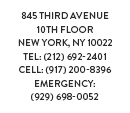Country Statement by President Cyril Ramaphosa at the United Nations High-Level Meeting on Tuberculosis
26 September 2018
President of the General Assembly,
UN Secretary-General,
Director-General of the World Health Organization,
This first ever UN High-Level Meeting on Tuberculosis is a historic opportunity that we must embrace if we are to effectively respond to a disease that has killed more people than smallpox, malaria, the plague, influenza, HIV and AIDS and Ebola combined.
This meeting is taking place in the year of the centenary of the birth of South Africa’s founding President, Nelson Mandela.
President Mandela was a survivor of tuberculosis, which he contracted while in prison, and was firmly committed to the campaign against the disease.
In 2004, he said:
“The world has made defeating AIDS a top priority. This is a blessing. But TB remains ignored. Today we are calling on the world to recognise that we can't fight AIDS unless we do much more to fight TB as well”.
Tuberculosis is not just a medical condition.
It has many social determinants, including poverty, unemployment, poor nutrition, overcrowding and social stigma that fuel the spread of diseases.
This means that the poor and marginalised carry a disproportionate disease burden.
In South Africa, TB is the biggest cause of mortality in the general population, especially among men.
There were 322,000 new TB infections in South Africa in 2017, which is a significant decline from the 2015 estimate of 438 000.
The decline is attributed to strengthened response in the form of rapid roll-out of new diagnostics and drugs.
South Africa’s large antiretroviral programme has significantly contributed to better TB outcomes, including successful treatment and reduced mortality.
In South Africa, 60% of people living with HIV are co-infected with TB.
This means that any strategy that does not address both the TB and HIV epidemics will not succeed.
South Africa is a member of the BRICS TB Research Network, which is a collaboration among BRICS countries on research and development to produce new TB diagnostics, vaccines and medicines.
This is important as the BRICS countries contribute 40% of all drug susceptible TB and 50% of all drug resistant TB globally.
South Africa supports the “Key Asks” identified through a consultative process led by the World Health Organization, Stop TB Partnership, civil society and other interested parties.
We would like to see the Declaration emanating from this High-Level Meeting embracing the “Key Asks” and setting in motion the bold response needed to end the global Tuberculosis epidemic.
Investing in research and development is critical if we are to develop new diagnostics, vaccines and medicines – and find innovative ways to deal with the social determinants of Tuberculosis and its transmission.
It is only with new tools that we can achieve the dramatic reduction in the incidence of TB needed to ensure total elimination of this disease by 2030 or earlier.
To succeed, we need to ensure that drugs are affordable.
We must adhere to the 2001 WTO Doha Declaration on the TRIPS Agreement and Public Health, which recognises that intellectual property rights should be interpreted in a manner that supports public health and promotes access to medicines for all.
Ultimately, all our efforts to end Tuberculosis will not succeed unless we are able to implement universal health coverage.
The achievement of universal health coverage is essential because those who are most affected by TB are those who have the greatest difficulty accessing health care.
As South Africa, we look forward to the meeting of the UN General Assembly of 2030 where it should be declared that indeed, we have ended the Tuberculosis epidemic.
Please be assured of our commitment to ensuring that we do everything possible to end Tuberculosis as a public health threat by 2030, if not earlier.
I thank you.
Thursday, 27-Sep-2018 2:11 PM



